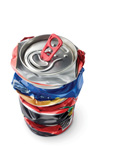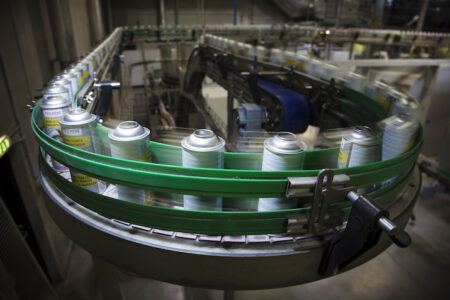Students achieve recycling success

Schools across America recycled more than 4.5 million aluminium beverage cans in the second year of a national recycling competition sponsored by the US can industry.
The Great American Can Roundup raised $100,591 for school activities and local charities across the country. More than 790 schools from all 50 states participated in the second annual contest, which runs each year from 15 November (America Recycles Day) to 22 April (Earth Day).
“By any measure, this year’s program was a tremendous success,” says Robert Budway, president of the Can Manufacturers Institute (CMI), the trade association representing can makers and their suppliers. “These students recycled more than 65 tons of cans. Their hard work not only helped protect the environment, it raised money for local schools and charities across the country. We couldn’t be more pleased.”
Some 66,000 students ran collection projects that recycled 131,183 pounds of aluminium cans. At current rates, the aluminium collected is worth more than $65,500, which the students can donate to their schools or local charities. In addition, CMI awarded $1,000 to the top recycling school in each state that fulfilled all contest requirements. The National Champion receives an additional grand prize of $5,000.
Schools were judged on a per capita basis, comparing the number of cans recycled to the number of students participating. With a recycling rate of 70.49 pounds, Expedition Academy in Green River, Wyoming, was the national champion for the second year running. Two Montana schools rounded up the top three: Fromberg High School, Fromberg, placed second; and Cascade High School, Cascade, third.
American consumers earn more than $1 billion annually from recycling cans, making aluminium and steel cans the most valuable recycled consumer package. About 67% of steel food cans and 58% of aluminum beverage cans are recycled each year in the US.
“Metal, essentially, is a permanent resource,” adds Budway. “Chances are, the metal in the soda can you’re holding now was previously used by your grandparent’s generation and will likely be used by your grandchildren’s generation. A permanent material meeting the needs of yesterday, today and tomorrow, while minimising landfill waste and resource depletion, what can be more sustainable than that?”



